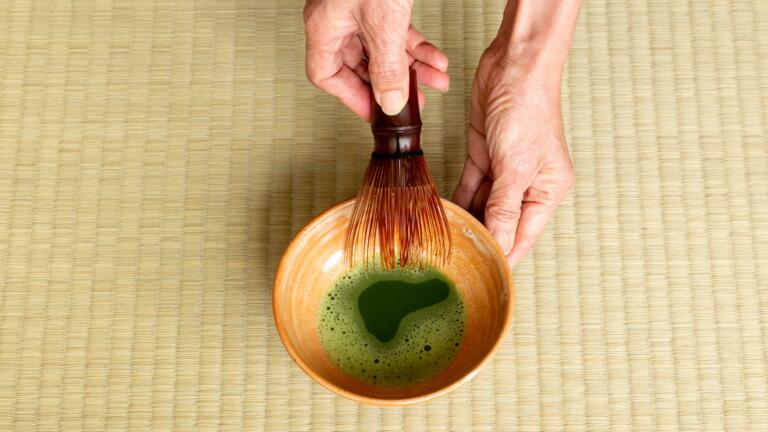The Way of Tea (Chanoyu), Japanese Tea Ceremony and Tasting

The USF Center for Asia Pacific Studies is excited to welcome Omotesenke Domonkai Northern California to our campus for a Japanese tea ceremony demonstration.
Tea was introduced to Japan around the 8th century from China. By the end of the 12th century, matcha, a powdered green tea, was brought from the Song Dynasty in China. Initially valued for its medicinal properties and consumed primarily as a beverage, matcha gained prominence among Zen priests, who used it to aid meditation, before spreading to the upper class. In the mid-16th century, Master Sen no Rikyū perfected the Japanese tea ceremony, or Chanoyu, embedding it with Zen principles. During this time, tea practitioners and Zen priests deeply influenced one another, shaping Chanoyu into a practice that reflected the aesthetics and philosophy of Zen.
Today, the grand masters of the three Sen traditions of tea continue their Zen training at Kyoto's Daitoku-ji Temple. For the Japanese, Chanoyu is far more than just a refined way of drinking tea - it is a disciplined art that embodies the pursuit of “wabi,” a state of mind characterized by calmness, contentment, and profound simplicity. Through its emphasis on mindfulness, harmony, and a connection with nature, Chanoyu serves as both a spiritual practice and a means of cultivating inner peace.
Organization bio:
The Japanese Tea Ceremony, known as the “Way of Tea” or Chanoyu, has been a cornerstone of Japanese culture for over 400 years. Omotesenke Domonkai, a distinguished Japanese tea ceremony organization, was founded in Kyoto in 1942 to preserve and share this rich tradition.
Inaugurated in 1871, Omotesenke Domonkai Northern California has been dedicated to introducing the philosophy and aesthetics of the Way of Tea to the community. Through demonstrations and educational programs, the organization fosters a deeper appreciation of Japanese culture, emphasizing harmony, respect, purity, and tranquility - the guiding principles of Chanoyu.
This event is co-sponsored by the Japanese Studies Program.